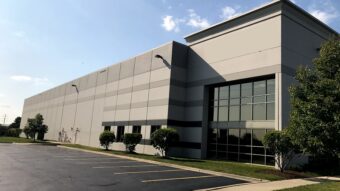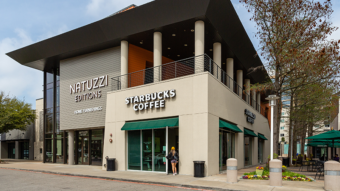Jeff Musser, vice president in the Cleveland office of Bellwether Capital, calls it the “Amazon effect,” the powerful impact that the online retailer has had on traditional brick-and-mortar retailers.
You can see how Amazon has hurt big-name retailers such as Macy’s, Sears and J.C. Penney, forcing these big-box retailers to shutter stores across the Midwest and the country.
Retail’s struggles are one reason why so much of the commercial loans that Bellwether and other financing companies are making today are for other commercial sectors. Musser said that multifamily financing requests typically account for 50 percent of the annual business that his company closes.
“In general, multifamily is still the favorite asset class of lenders, with the only caveat being that there is substantial new product coming online in certain markets and submarkets, and in those markets, lenders are being more cautious,” Musser said.
This doesn’t mean, though, that other asset classes – including the sometimes struggling retail sector – won’t receive commercial financing today.
Lender, though, are taking a long look at retail financing requests, Musser said. It’s not always easy for lenders to finance requests for new retail developments or acquisitions, he said. But that doesn’t mean that such deals are impossible to close.
“Retail is probably the most challenging asset to finance today given the ‘Amazon’ effect,” Musser said. “But at Bellwether, we like a good challenge.”
Musser, though, said that lenders today prefer working with retailers who are taking the steps necessary to evolve to today’s changing shopping landscape.
Musser said that the savviest of retailers are changing their business models and the way they serve their customers. Others are realizing that they simply offer too many locations, and by closing underperforming stores are making changes that could strengthen their businesses.
“I think everybody can agree that retail is overbuilt in general, but what a lot of people don’t realize is that a lot of the retail product that is struggling is obsolete and/or in undesirable locations,” Musser said. “While Amazon is taking market share from the traditional retailers, a lot of the retailers who are struggling are overleveraged and can’t sustain the competitive pressures facing the industry.”
For Musser, everything from where a property is located to the population trends in a given market make a difference in whether Bellwether grants financing requests.
“The most important factors to consider when looking at a new deal are the location of the property – whether it’s good or bad or is located in a gentrifying or growing neighborhood – the past performance of the asset, Bellwether’s expected future performance of the asset based on the property’s economics, location and physical characteristics,” Musser said.



